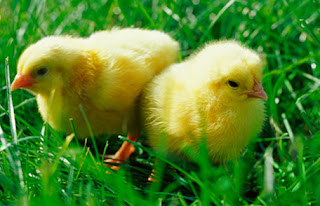Princess Health and Salmonella outbreak in 35 states linked to live poultry; 21 cases reported in Kentucky; here are some tips to avoid infection . Princessiccia
bacterial infections children's health farmer infections salmonella |
| U.S. Centers for Disease Control and Prevention photo |
�Any contact with live poultry puts you at risk for salmonella infection,� Jacqueline Jacob, UK poultry extension project manager for the College of Agriculture, Food and Environment, said in a news release. �Salmonella germs can be in the birds� droppings and on their bodies and also on their cages, coops, hay, plants and the soil where they live and roam.�
Salmonella is a bacteria that makes people sick. Symptoms usually develop 12 to 72 hours after exposure and include diarrhea, fever and abdominal cramps. The illness usually lasts four to seven days. Children under 5, adults older than 65 and those with weakened immune systems are at the greatest risk of being severely affected.
So far, more than 300 people have been infected, with more than one-fourth of those children aged 5 or younger, according to the federal Centers for Disease Control and Prevention.
�Many of the cases in the current outbreak are linked to backyard flocks, so we want to remind folks of simple things they can do to protect themselves," Jacob said.
Tips to avoid infection:
- Wash hands thoroughly with soap and water immediately after touching live poultry or anything in the area where they live.
- Do not let live poultry inside the house, or around areas where food or drink is located.
- Do not let children younger than 5 handle or touch live poultry without supervision.
- Adults should supervise the handwashing of young children.
- Keep poultry away from your nose, mouth and eyes.
- Wash your hands with sanitizer that has a 99 percent or higher bacteria kill rate after handling poultry at shows and fairs.
Click here for more advice from the CDC for backyard flock owners.

